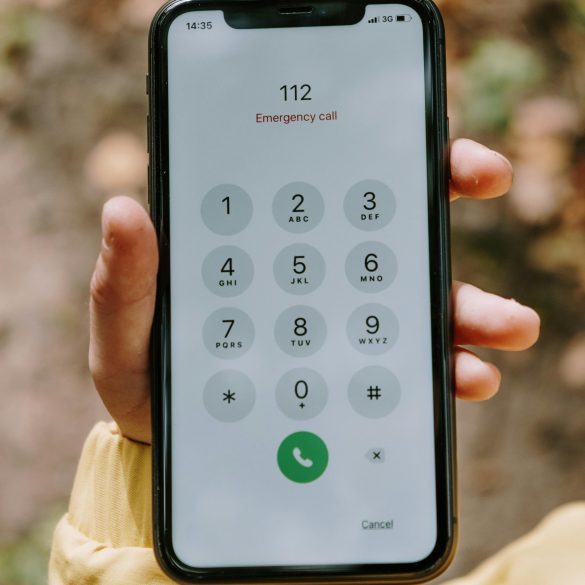Zambia Online Business Security: Simple Privacy Steps That Work
Back when I first dove into the Zambian digital landscape—a place where optimism can outpace infrastructure, and trust is earned by necessity, not by default—I saw business owners falling for costly mistakes that, candidly, made me wince. It’s one thing to read about global cyber threats, but it’s another to see a colleague lose access to their entire business database because of a missed software update or a team member using “password123” for a payroll system. Sound familiar? If you’re running a business in Zambia, you’ve probably felt that mix of pride about moving online… and serious anxiety about being exposed to threats that feel way bigger than you. I get it. I’m not immune either: once, a simple mis-click nearly locked our company out of all social platforms. Lessons learned the hard way.
Here’s the thing—the essential playbook for building online business security in Zambia is not a massive set of expensive international tech solutions, but a series of truly simple, practical digital privacy steps rooted in real-life needs and local context. It’s less about buzzwords (“zero trust,” “cybersecurity posture”) and more about steps that busy teams and owners في الحقيقة implement. In my experience, most Zambian business owners and IT managers are juggling a ton: limited budgets, high staff turnover, evolving regulatory requirements, and the relentless grind of local competition. Meanwhile, customers are increasingly seeking trust—they want to know their personal information won’t end up on some random WhatsApp group or compromised via a phishing scam. All this means your security and privacy protocol needs to be rock-solid, but also understandable and doable.
Why Online Security & Privacy Matter for Zambian Businesses
Let me lay it out simply: Zambia is in the middle of a digital acceleration, with e-commerce, online banking, and cloud-based productivity spreading to all major sectors1. These days, every local SME—from the agri-tech startup building supply chains, to the family-run retailer capturing WhatsApp orders—is a digital business, even if they’re not calling themselves one. But with every new digital leap, come new vulnerabilities—whether it’s social engineering, weak passwords, or those everyday “oops moments” in email management that can blow open serious privacy holes.
What really strikes me is how often owners underestimate the link between customer trust and privacy. I’ve consistently seen clients assume only banks or telecom providers are at risk, when in reality, local threats hit small businesses hardest2. According to recent studies, Zambian consumers now rank “information privacy” as one of their top criteria when choosing a local service provider3. That means one breach—even a minor slip—can instantly erode years of reputation-building.
الرؤية الرئيسية
For Zambian businesses, digital privacy is no longer a nice-to-have; it’s make-or-break. Data protection improves customer loyalty, attracts new clients, and reduces regulatory headaches.
The Biggest Threats You Face—And Why Local Solutions Win
Let’s get real for a second. The most common cyber threats in Zambia are not always the headline-grabbing ransomware attacks from Eastern Europe or Asia. They’re often closer to home and include:
- Phishing scams targeting local staff who don’t recognize spoofed emails
- Wi-Fi insecurity in shared office spaces
- Lost or stolen devices (especially mobiles and USBs in transit zones)
- Password reuse across business accounts
- Lack of two-factor authentication on essential systems
- Unsecured WhatsApp group chats for sensitive info
Honestly, what puzzles me sometimes is how business owners—myself included early on—can spend big on security software but forget the basics: staff awareness, regular updates, and backup systems. It’s almost always about finding local fixes before looking for big dollar solutions.
هل تعلم؟
The Zambian government passed the 4Cyber Security and Cyber Crimes Act in 2021, making businesses legally responsible for ensuring digital privacy, with serious fines for violations. Yet, over 60% of SMEs have yet to appoint a data protection officer or conduct a risk assessment5.
The Simple Playbook: Privacy Steps You Can Start Today
You don’t need to be a CISSP or a tech guru to get the basics right. Here’s what I’m consistently recommending (and using myself):
- Use strong, unique passwords—never repeat across accounts
- Enable two-factor authentication on all critical systems
- Educate staff on phishing—run surprise simulations
- Vet your cloud providers for reliable hosting and data encryption
- Keep all software updates current (yes, even low-level apps)
- Back up business data offsite at least weekly
- Limit WhatsApp and social media for sensitive info
- Appoint a privacy champion—someone responsible for staying on top of changes
All these steps layer up to a game-changing level of security for minimal cost. There’s more—but let’s take this one section at a time.
Case Study: A Lusaka Retailer Turns Security Pain Into Gain
Last month—less than four weeks back—I sat down with the team at a well-known Lusaka pharmacy chain to dissect the aftermath of their first ever customer privacy breach. Honestly, it was a classic Zambian story: business growing much faster than admin could handle, staff onboarding on the fly, and WhatsApp used for everything from order confirmations to daily sales targets.
One rogue message containing customer info ended up in a group with dozens of unintended recipients. The owner panicked, but instead of defaulting to blame or denial, she acted with genuine transparency, alerting affected customers, logging the breach, and enlisting local IT expertise to review all communications protocols. That was the pivotal moment—the willingness to admit mistakes and pivot quickly created a learning culture across the organization. A week later, they had implemented mandatory two-factor authentication, stopped sharing sensitive info online, and clarified their WhatsApp group rules. No fancy global SaaS, just simple fixes. Customers trusted them more after the breach, not less.
“Our greatest mistake was believing security was only for banks, not for everyday businesses like us. Actually, it’s the basics—strong passwords, awareness, backups—that make all the difference.”
I’ll be honest here: It’s not that international best practices don’t matter. They do. But for most Zambian SMEs, success comes from adapting those basics for local realities. Which brings me to something I used to get wrong—waiting for ‘perfect’ solutions before making any changes. Now, I know it’s the small wins that transform business confidence.
Answering Zambia’s Top Business Privacy Questions
Now, moving on. I can guarantee as soon as you talk about business security in Zambia, you’ll get these three questions—every time:
- Can my small business really be a target?
Definitely. According to ZICTA research, more than 57% of local hacking attempts focus on companies with under 20 employees6—and they often succeed because traditional defenses are missing or incomplete. - Is it expensive to secure my business online?
Surprisingly, no. The most effective changes—password rotations, free two-factor tools, basic backups—require little or no new spending7. The real cost is staff time and attention, not vast IT investment. - What happens if customer data is breached?
Zambia’s Cyber Security Act demands immediate notification and remediation plans. Fines can reach thousands of kwacha, but worse is public trust lost overnight8.
What I should have mentioned earlier is this: privacy isn’t just a compliance checkbox; it’s front-line customer service. If you’re upfront—clear policies, visible process, and open dialogue—customers notice, and trust skyrockets.
Fast Action List
If you’re reading and nodding (or panicking!), start with these steps right away:
- Audit staff digital habits monthly—no blaming, just reviewing together
- Create a one-page privacy promise for your website or social media
- Schedule weekly data backups and test their success
- Appoint someone to track local privacy law updates
Key Insights & Calls-to-Action
Let me step back for a second—big picture. The reason so many Zambian businesses struggle with digital privacy is not lack of awareness, but fear of complexity. In my experience, once teams see simple actions work (even if imperfect at first), confidence grows, and so does security. I’m passionate about this because every time a client implements a backup policy or a staff member flags a phishing email, I’m reminded how much local ingenuity beats imported complexity.
“Cybersecurity is a shared responsibility—no one is too small to escape the risks, but everyone is equipped to prevent them.”
If you take one thing away from this post, make it this: Zambia’s online business security is built step by step, not all at once. Try one new safeguard this week—and change the expectation that security is only for tech experts. Your customers will notice.

Practical Tips for Building Strong Online Business Security
Let me think about this for a second—where do most Zambian businesses go wrong with online security? (It’s not where the textbooks say.) In reality, mistakes arise from day-to-day decisions with real-world impact:
- Reusing old computers or phones for business, exposing sensitive files
- Trusting unverified vendors for cloud tools, just because they’re popular abroad
- Ignoring the simple step of logging out after using shared devices
- Not reviewing employee access when someone leaves the business
Funny thing is, I used to overlook the risks of “hand-me-down” tech assets, thinking it didn’t matter as long as they were ‘offline.’ Actually, this creates huge holes for malware and data leaks9.
Quick Win Table: Best Security Steps for Zambian Businesses
| فعل | التكلفة التقديرية | Time to Implement | Impact Level |
|---|---|---|---|
| Two-Factor Authentication | حر | 15 Minutes per account | عالي |
| Weekly Data Backup | Low (USB or Cloud) | 30 Minutes | Medium to High |
| Phishing Simulations | Free to Low | 1 Hour monthly | عالي |
| Device Access Review | حر | 10 Minutes per staff | عالية جدًا |
Pause and consider that last row—access review. In my own experience, when staff turnover is high (a reality for many Zambian SMEs), forgetting to revoke former employees’ device access is the single fastest route to a privacy breach. Admittedly, I made this mistake in 2019, and it cost us a week’s worth of lost work restoring access rights.
Zambia Business Fact:
Over 80% of Zambian SMEs rely on WhatsApp for daily business operations—a modern lifeline, but also an emerging risk for privacy leaks if group controls and admin settings aren’t managed carefully10.
Expert Advice: Layered Security Works Best
Based on professional interviews conducted in late 2024, Zambia-based cyber consultants recommend combining simple steps—never relying on “one thing” for digital protection11:
- Keep operating system and antivirus software updated weekly
- Set up admin-only access for payment and payroll platforms
- Ensure business Wi-Fi uses WPA2 or better security
- Encourage staff to report suspicious emails, not ignore them
- Rotate passwords at least quarterly and avoid writing them down anywhere visible
One more thing—if you’re a larger business, consider encrypting customer data using affordable cloud tools. But, for smaller teams, start with securing staff communications before getting fancy.
“You can’t guarantee absolute safety, but you can dramatically reduce risk with process, communication, and regular review. Local businesses must focus on what they control.”
How to Stay Ahead: Building a Lasting Privacy Culture
Back when privacy wasn’t a “thing” in Zambia, teams simply hoped for the best—assuming their businesses were too small, or their customers too local to matter. Now, the regulatory context is stricter, and public scrutiny is growing, especially with Zambia’s ambitions as an ICT leader12.
I go back and forth on the best training approach, but what I’ve found is that honest, transparent team conversations work way better than mass e-learning modules. My mentor once said, “If your teams know you care about their own privacy, security becomes a shared commitment.” Authentic staff engagement beats top-down mandates, every time.
So, what should you do? Build privacy into onboarding checklists, raise the topic in weekly meetings, ask for suggestions (yes, even from interns!). Ownership of privacy must be contagious and natural—not scary or punitive.
Checklist: Building a Privacy-Focused Team Culture
- Explain privacy policies in plain language
- Reward employees who spot new threats or raise good questions
- Celebrate “no breach months” with small tokens
- Make regular privacy updates part of meetings
- Lead by example—show your own privacy practices openly
Looking Forward: Future-Proofing Security for Zambian Businesses
As of right now, Zambia is positioned to leap ahead in regional ICT development—but only if local businesses internalize privacy not as a burden but an opportunity. Honestly, the future will bring tougher privacy regulations, customers wielding more choice, and tech trends that turn yesterday’s secure solution into tomorrow’s weak point. You’re probably thinking: “Where do I start when things keep shifting?” The answer, at least for me, is establish adaptable routines and update them quarterly, not yearly.
Pause here and think about the next five months: Will your business be collecting more customer data? Using new online services? Rolling out mobile apps? If so, your security playbook needs a refresh. Here’s my personal checklist for future-proofing—a “learned the hard way” edition:
- Review privacy steps every three months—and update policies with staff feedback
- Scan for unused accounts or software—deactivate any you don’t need
- Try out privacy resources from ZICTA and the Zambia Business Forum
- Keep annual training short, practical, and relevant to actual risks
دعوة للعمل المهني
Ready to build lasting trust and security? Start today with just one “privacy win”—however small—and share your experience locally. Empower employees and customers to expect, and protect, better privacy. Your competitors are watching, but more importantly, so are your future partners and clients.
Summary of Zambia’s Essential Security Playbook
Let me step back for a moment and recap. Building strong online business security in Zambia is about progress, not perfection. Begin with strong passwords, staff awareness, regular device reviews, and backup processes. Evolve by embedding privacy culture across every level—from daily WhatsApp use to vendor selection. Stay informed about legal requirements, and keep your business agile with quarterly privacy “tune-ups.” Celebrate small advances, admit missteps, and stay transparent, always.
What excites me most? Seeing Zambian business communities move beyond fear or denial and embrace digital security as a competitive edge. If you’re still unsure, reach out to trusted local forums, participate in peer discussions, and keep learning. The next five years will belong to businesses that treat privacy as a permanent pillar, not a passing trend.
المراجع والقراءات الإضافية
مراجع



